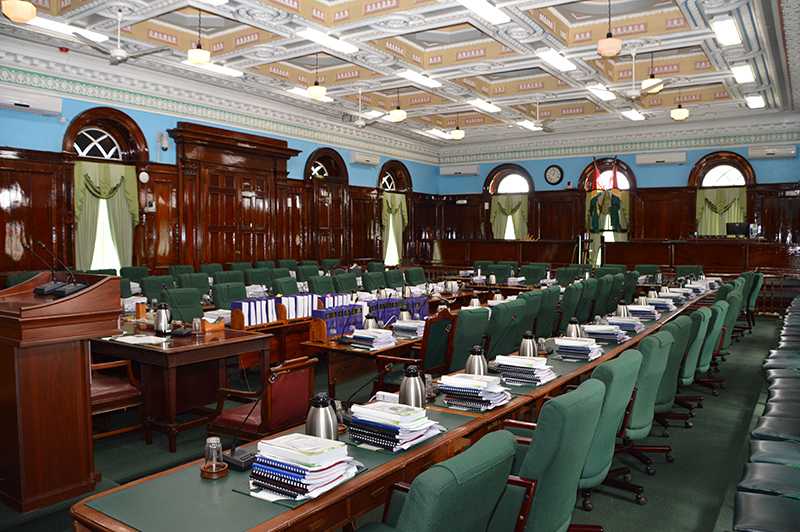Introduction
The Committees Division was established in May 2003. Its role is to facilitate the effective functioning of parliamentary committees by providing secretarial and administrative support and procedural advice to all the Committees of the National Assembly.
The Division comprised a Head, an Assistant Head, Clerks, Assistant Clerks, and support staff.
What are Committees?
Committees are microcosms or extensions of the National Assembly, limited in their powers by their delegated authority. Committees allow the Assembly to perform several functions simultaneously and provide the opportunity for comprehensive investigation and discussions before presenting their findings as reports to the National Assembly.
Types of Committees
Parliamentary Committees are of three types: Standing Committees, Sessional Select Committees, and Special Select Committees. Standing Committees are permanent Committees and continue for the life of the Assembly. Sessional Select Committees are appointed at the commencement of each Session of the National Assembly. Special Select Committees are appointed by motions on an ad hoc basis to carry out specific tasks, and they cease to exist when they have tabled their final reports.
Additionally, each Committee can appoint a Sub-Committee to relieve it of some of its workloads by delegating a portion or portions of its mandate or a particular task to a sub-committee.
Structure
Committees shall comprise at least six (6) no more than ten (10) members, except for Sectoral Committees, which shall consist of seven (7) Members and two Alternate Members, one representing the Government and one representing the Opposition.
Membership and Quorum
The composition of Committees reflects the balance of Parties in the National Assembly. Except for the Parliamentary Management Committee (PMC) and the Public Accounts Committee (PAC), the quorum of a meeting is three (3) Members. The quorum for the PMC and PAC are five (5) Members, two (2) representing the Government, two (2) representing the Opposition, and the Chairperson. In the case of the PMC, one (1) of the Opposition Members must be from the main Opposition party.
The PMC is chaired by the Speaker or, in his/her absence, the Deputy Speaker.
The chair of the PAC must be a Member of the Main Opposition.
Functions
Parliamentary Committees have several essential functions:
- To examine Legislation in detail.
- To scrutinize the activities of the executive in greater depth than possible in the Assembly, particularly relating to public expenditure.
- To conduct enquiries into a specific matter of public concern.
- To investigate subject areas and provide recommendations to the Assembly – Committees offer Members an opportunity to hear the public’s views on particular issues.
- To identify the appropriate bodies for consultation in appointing Members of the Rights Commissions (Ethnic Relations, Women & Gender Equality, Indigenous Peoples’ and Rights of the Child) and the Service Commissions (Public/Police Service and Judicial Service).
- Visit any government activity or project in Guyana as agreed and arranged by Sectoral Committees.
- All Committees must report back to the National Assembly.
Another essential function of the Parliamentary Committee system is appointing the Director, Deputy Director, and other senior personnel of the FIU, appointing a Director to the Board of the Natural Resource Fund, and a Member of the Public Accountability and Oversight Committee.
Process
The Mandates of Committees are outlined in the Standing Orders of the National Assembly.
The first order of business is the election of a Chair, and in the case of Sectoral Committees Deputy Chair under the direction of the Speaker.
A Clerk and two (2) Assistant Clerks are assigned to each committee to coordinate the Committee’s activities and provide procedural and administrative support to Members. Researchers are also assigned to some Committees.
Immediately after, Committees commence work, they develop their work programme and activities, setting dates to complete their work.
Committees conduct their deliberations and make decisions within the framework of meetings.

